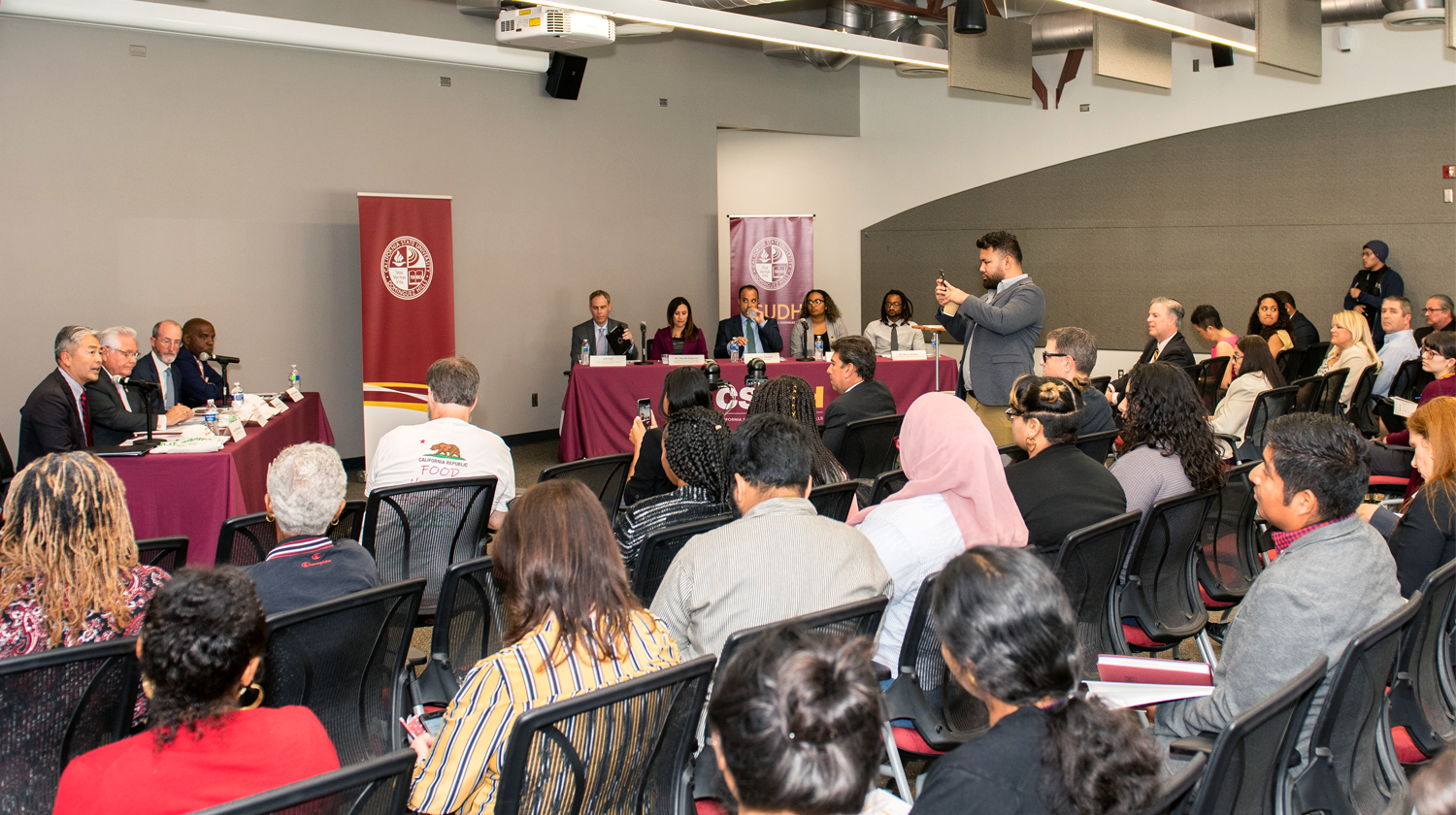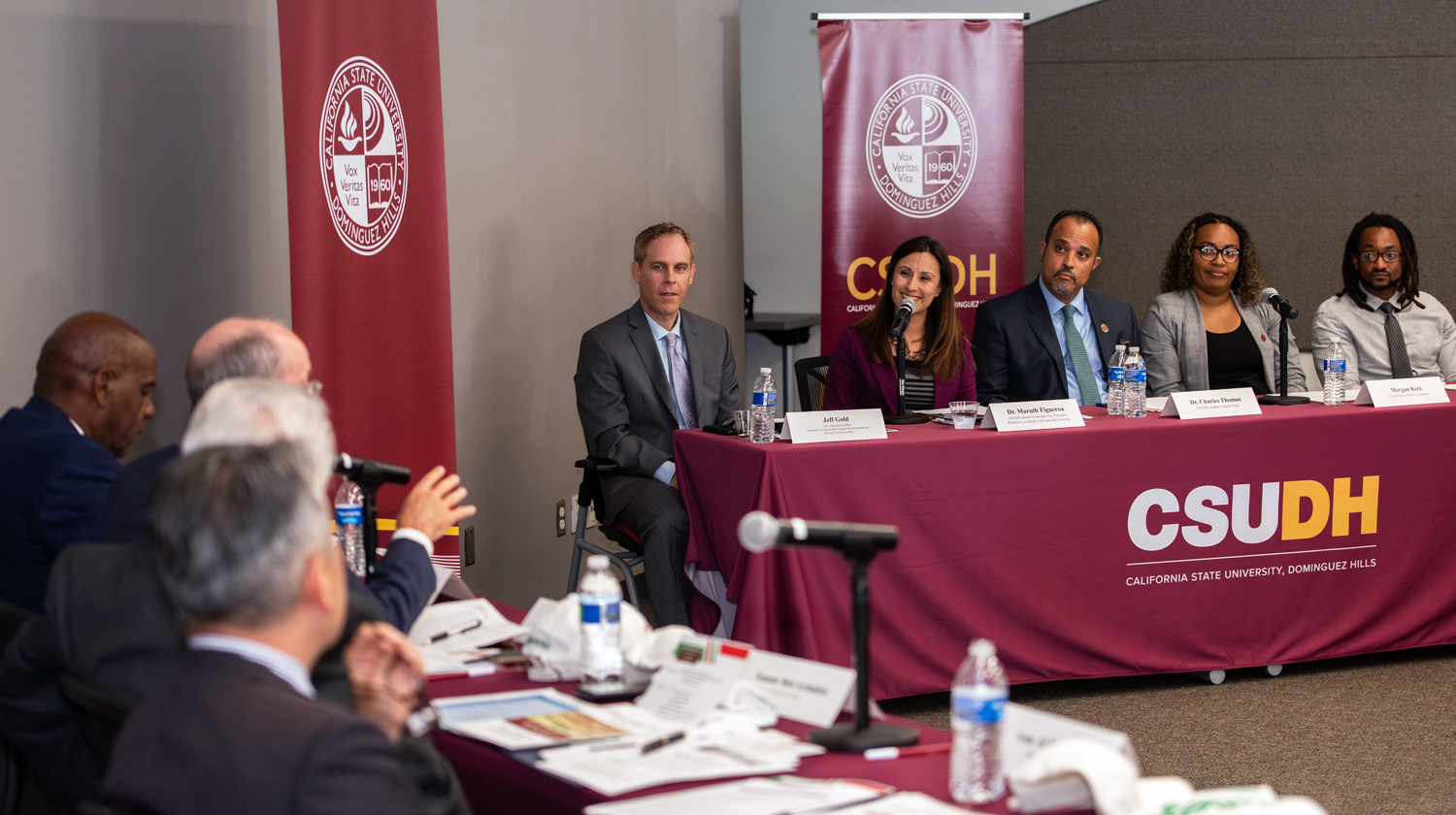
California State University, Dominguez Hills (CSUDH) welcomed four California legislators on October 7 as part of their California Senate College Tour. The two-year tour is primarily focused on the academic success of students from historically underserved populations. They left campus touched by the CSUDH’s broad commitment to student achievement and well being, and offered their help at the state level.
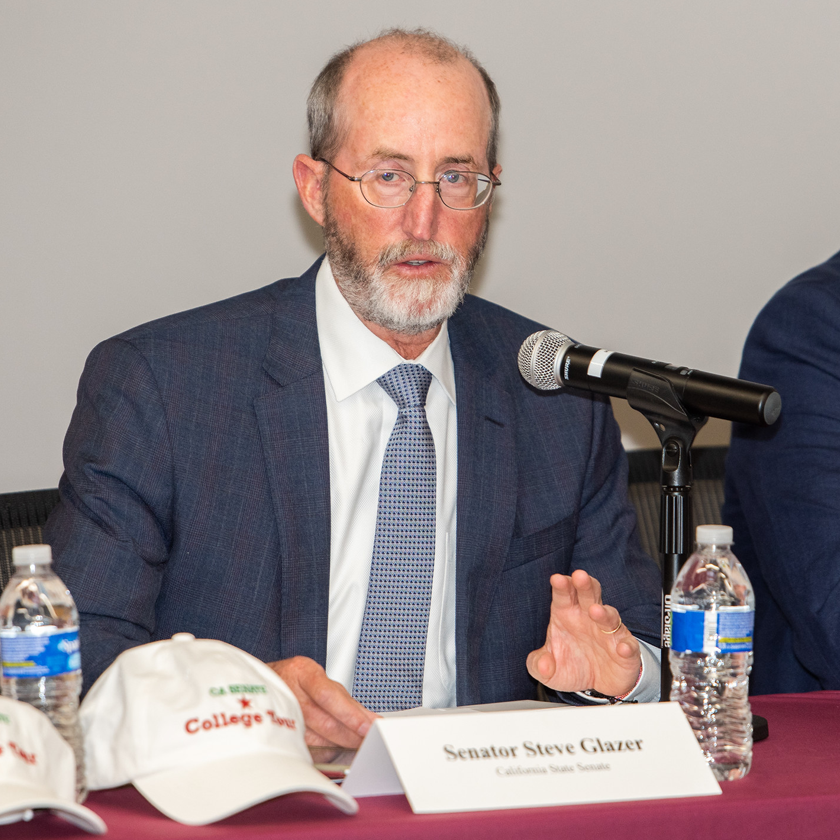
The senate’s fact-finding tour was designed to provide insights into the barriers that are impeding student success in college, with a specific focus on how housing insecurity, hunger, and health issues may delay or prevent academic success.
“We’re not just focused on what’s happening in the classroom and students’ ability to get through college with a degree, but also if their basic needs are being met,” said Senator Steve Glazer (7th District), who led the panel discussion. “So it’s important that we get on-the-ground knowledge about what’s happening here at Cal State Dominguez Hills, and campuses around our state.”
Joining Glazer on the tour of CSUDH were Senator Steven Bradford (35th District), a CSUDH alumnus; Assemblymember Al Muratsuchi (District 66); and Senator Bob Archuleta (32nd District). They heard from a panel of CSUDH leaders who shared what their departments and colleagues do on campus to advance student achievement. Assistant Vice Chancellor Jeff Gold also joined the panel on behalf of the California State University (CSU) Office of the Chancellor.
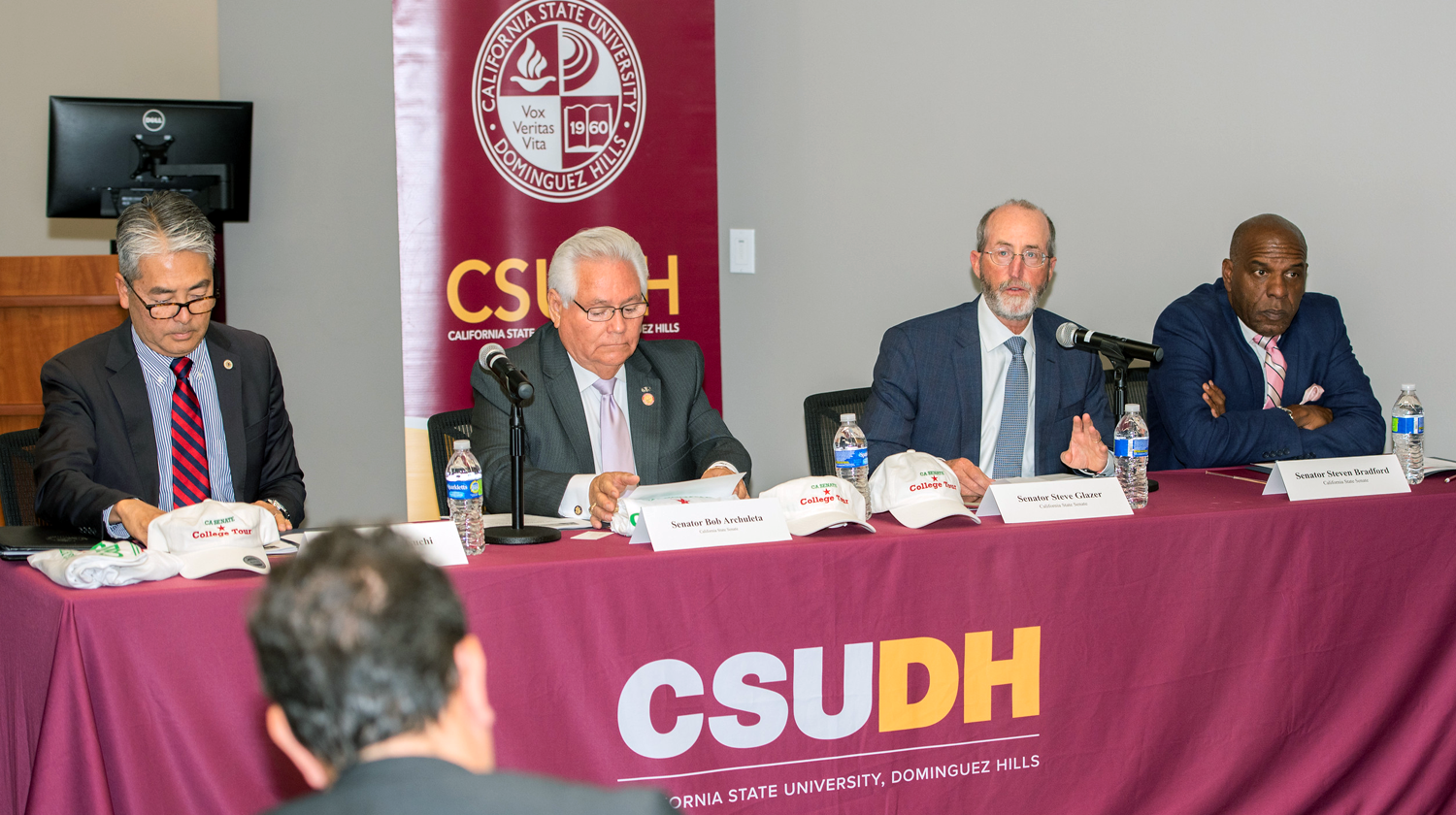
Morgan Kirk, CSUDH Academic Services’ basic needs coordinator, cited a few data points in the Office of the Chancellor’s basic needs study: 41 percent of CSU students experience food insecurity; and 10.9 percent have been homelessness once or twice within their first year in college.
“We believe the number of students experiencing basic needs challenges at CSUDH is larger than what the CSU study indicated. That’s why we are working diligently to develop a more comprehensive basic needs program. With the addition of a current budget request, we will be able to hire our first case worker on campus,” Kirk said.
Academic Services has been addressing struggling students’ basic needs for years with food pantries, emergency funding, and emergency housing that makes available two one-bedroom units in University Housing for homeless students to live for up to 10 days. During their stay, the students are connected with People Assisting the Homeless (PATH), an organization that works to end homelessness for individuals, families, and communities.
“The information you’ve shared with us is more than disappointing – it’s shocking and depressing,” said Glazer. “I’m glad to hear about your success with the food banks and the emergency shelter.”
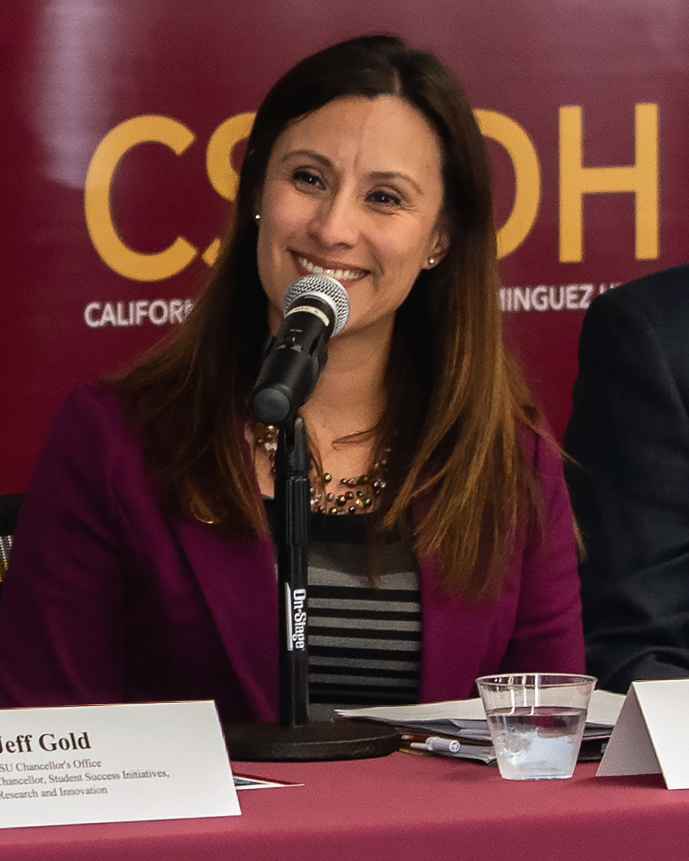
When they arrived, the legislators had some concerns about CSUDH’s graduation rates and the number of students who have signed up to the CSU’s California Promise program. The program enables campuses to establish pledge programs for first-time freshmen to commit to graduation in four years, and for transfer students to commit to two years.
Maruth Figueroa, interim associate vice president of retention, university academic advisement and learning, explained that CSUDH had been successfully addressing graduation rates and quicker degree completion even before the California Promise program was created.
“Our students are already part of other initiatives on our campus. We have the First-Year Experience, a program that all of our freshmen students participate in. Our transfer students are also engaged in the Transfer Learning Community,” said Figueroa, who emphasized that timely graduation is discussed in all student programs.
Glazer asked, “What are you not getting here at CSUDH that can make you more successful?”
“We need more sustainable funding to continue and build upon the work that we have done,” Figueroa continued. “What we really need are people in these programs who are dedicated to outreach and support, including outreach to faculty, because it takes both the students and faculty working together to make these programs successful.”
Charles Thomas, Academic Senate chair and assistant professor of business law, poignantly drew comparisons to his own life when painting a picture of today’s students and the external factors that influence time to degree.
“In many ways I reflect our student body. Like 63 percent of our incoming class, I was the first in my family to attend college. Like 82 percent of our incoming class, I’m a member of an underrepresented minority group, and like 70 percent of them, I was a PELL recipient throughout college,” Thomas said. “Despite these similarities, our students experience significantly more challenges and a much more expensive collegiate landscape than when I attended college.”
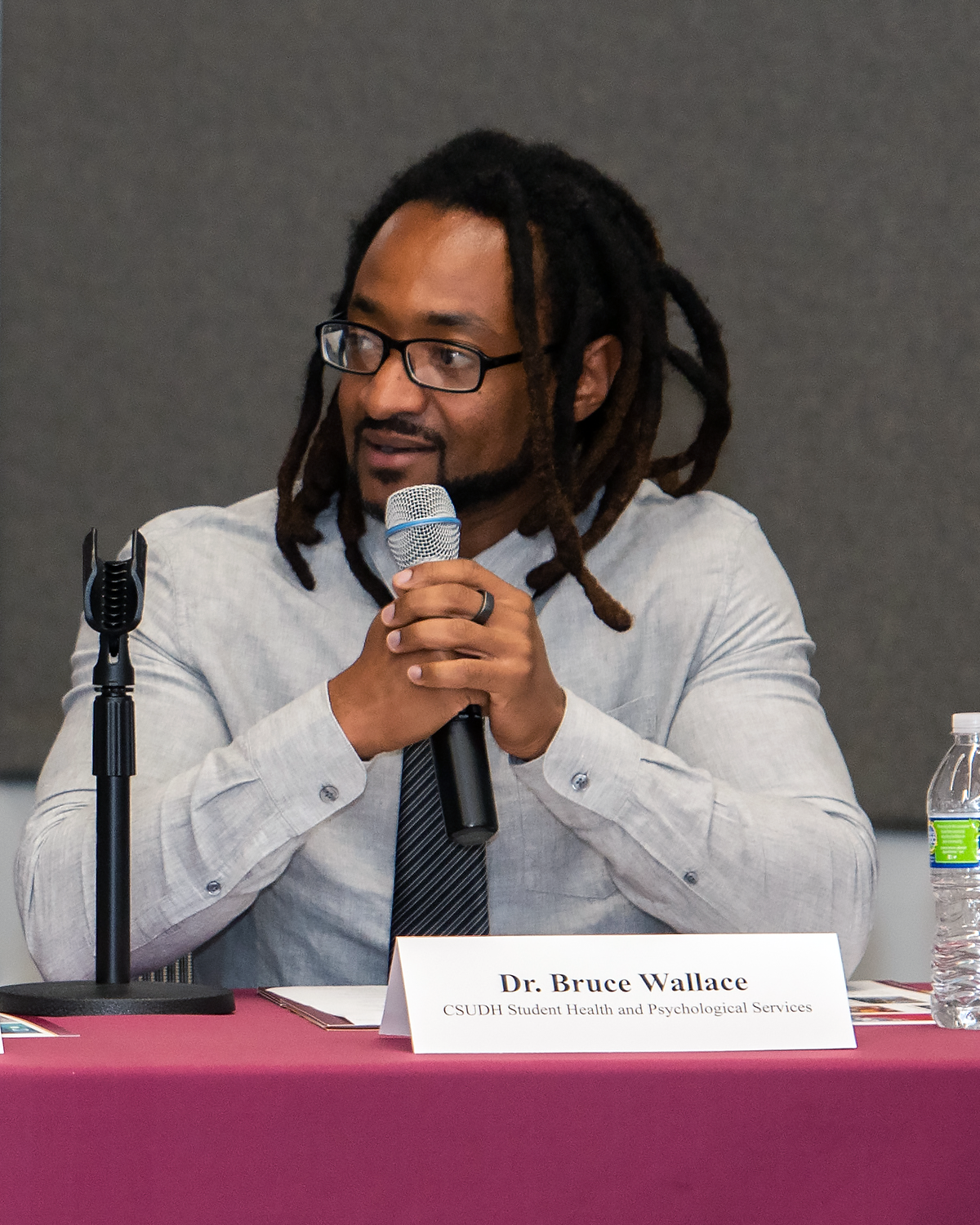
He referred to a Sacramento Bee article that reported college costs are 14 times higher than they were 40 years ago, “when you, Sen. Glazer, graduated from San Diego State.” He said CSUDH students tend to avoid taking on too much financial aid debt–something he did and is still paying off– resulting in students working more and going to school only part-time (i.e. taking less than 15 units).
“Some of the research literature implies that those with 30 hours or more of outside commitment -largely work, including care-taking–can’t thrive and be successful with a 15-unit load per semester,” he explained.
Thomas went on to tout the important role CSUDH plays in the social mobility of the region, noting the university ranks fourth in the state in its graduates earning more than their parents. He further elaborated on the efforts the university has made to support students holistically, but stressed that the current needs of students outpace university resources.
The legislators turned to Bruce Wallace, a psychologist in Student Health and Psychological Services, to learn how CSUDH addresses students’ mental health issues. He began by describing how he personally felt uncertainty in graduate school due to impostor syndrome, a psychological pattern in which individuals doubt their accomplishments and have persistent internalized fear of being exposed as a “fraud.”
“With that comes a lot of anxiety, and fear when you’re at the finish line. I wondered, ‘Do I really want to step up?’ I think a lot of our students struggle with that as well – the sense of ‘Do I belong?’,” said Wallace. “We have done a lot of work to reduce such stigma and to empower students to recognize that they have important voices, and important contributions to make to the world.”
At the end of the discussion, Archuleta apologized for the panels’ data-driven perception of CSUDH’s graduation rates. His words reflected how impressed the legislators had become with the work CSUDH does with limited resources.
“Now I know that if you had the scale balanced in different ways, that the graduation numbers would be a lot higher – maybe as high as 80 to 90 percent,” he said. “The support that I want to fight for is not just on the academic side, but for the things that you all need. You need teachers, you need more help financially. I’m going to recommend to Senator Glazer that we help in a lot of ways.”
